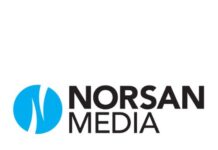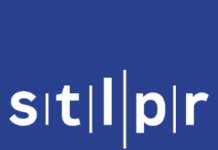
(BY Mike McVay) “Every man has a place. In his heart, there’s a space and the world can’t erase his fantasies. Take a ride in the sky on our ship, fantasy. All your dreams come true right away.” Written by Maurice White, Eddie Del Barrio and Verdine White, sung by Earth, Wind & Fire, the lyrics describe the escape that comes from our imagination. Be it a daydream, a passing thought, a goal or an actual dream, fantasies are a part of all of our lives.
Mediabase, having just expanded and absorbed all of BDS’ subscribers, is a platform that many of us are new to despite being familiar with the service. I’m enjoying the different aspects of the tracking service. Particularly the ability to review a couple hundred stations music logs, liners, promo copy and creative. The use of the word creative in this case is a loosely used term.
Radio station after radio station fails to create fantasy in how they write and produce their station imaging and in how they use audio to enhance their promotional messaging. Promo after promo is written with the necessary details, but without an acknowledgment of the benefit of winning the prize. You should know the answer to why someone will want to win a prize before you start writing your copy.
You’re giving away a trip to Hawaii? Understand why someone wants to win a trip to the islands. Instead of using Hawaiian music and the sound of the surf, use the sound of a jet on takeoff and sounds of irritants (dogs barking, phones ringing, boss squawking, cars honking) fading out as the journey to the 50th state begins. That’s why you want to go to Hawaii. It’s 3,000 miles from the mainland.
Many of the scripts I saw in Mediabase are akin to reading the ingredients of a laundry detergent. Tide isn’t sold by hyping that it includes Acrylamide – Methylacrylamideopropyltrimethyl ammonium chloride copolymer. Instead, they market that “Tide has unique formulas that helps deliver the cleanest clothes you can get.” They promise “Whiter whites.” The benefit is evident and their commercials put a spotlight on what’s important to the consumer.
A large number of statements being used on-air as sweepers or liners are not credible, have no clear benefit, and aren’t easy to understand. Is it credible to exit an 8-minute commercial break with a sweeper that screams “More Music?” You’re better off to simply promote the upcoming three artists on the way or simply mention your station name/frequency that you’re back to the music. If someone just sat through an 8-minute commercial break, they’re not paying attention.
One programmer I spoke to opined that she wished she had the time to write creative promos, but doesn’t, because of the other tasks that require her time. She herself referred to the distractions that take her and many Program Directors away from the creative side of their role. Which should trigger an alarm that sends everyone scrambling to battle stations. If you are a program director … the most important are on which to focus is on what comes out of the speakers. During my time as a PD, and even as a corporate programmer, the area where my input was most beneficial was in that regard. Be responsible for everything that comes out of the speakers.
It is unfathomable to me that any responsible programmer would not spend time writing and rewriting promo copy and liners to be benefit based. Before seeing and hearing it, I couldn’t imagine that a station wouldn’t update their messaging at least weekly, if not daily. Imaging, promotional messaging, sweepers and liners are where a radio station develops its’ personality. It is one of the few areas a PD can control.
Consulting and working with Benztown these last few years have given me insight into the forethought, strategic discussions, and creative process around imaging, event and contest promotion and the importance of audio integration matching the brand of a station. These are things that were a universal focus of radio at a time when stations had copywriters, individual producers and voice talent on standby. The multitasking nature of the business today has eliminated inhouse imaging talent in many cases. Not all, but mostly.
Because Benztown is a global company, I’ve ben able to hear the type of imaging and audio being created by stations worldwide. Radio stations in Australia and New Zealand, countries where I’ve consulted before, are giving the best of America a run for their money. The fantasy of winning an experience is well sold because the copy is well written and produced in unique ways that jump out of the speakers. There are, of course, some pretty amazing radio stations in the USA that do some very creative imaging. Unfortunately, those stations are in the minority.
Make it a New Years Resolution to create brand imaging, promotional messaging, liners and sweepers that are a part of the entertainment and engagement on your station. Do not make it “just another commercial” on your station. Focus on the benefit of a prize that’s being given away, the fantasy of an experience, the reason someone wants to win, listen, participate in whatever it is you’re offering. Break away from checking boxes next to tasks. Create. Be creative. Outsourcing is not a dirty word. Be a part of the process as it is the programmers’ vision that will create the stations personality.






They shouldn’t have let all the creative thinkers go once upon a yesterday.
The concept of “theater of the mind” dates back to the early radio plays, pre-tv. The ability to create pictures through sound has always made the difference between just performing and communicating. Mike does a good job in updating and applying it. Creating and producing of all promos, imaging, rejoins, intros, contests, even jingle packages need to incorporate voice, copy, music and SFX to not only stand out and be creative but also to be consistent with the ” the stations” personality” to brand. In the “hay day” of independent radio, every station had a distinct personality, it not only reflected format but commitment to the mission of the station. With so much consolidation and incorporation, not to mention competing media, this becomes more challenging but acheivable.
Excellent Mike. When consolidation hit, gone were the in-market, format wars that naturally created a need to constantly define and differentiate everything. Talent, music, commercial load, contests, audio processing, imaging, etc. When we no longer had daily format warfare, we lost the need to be creative. Sadly it will never return. Craig Scott Savannah GA